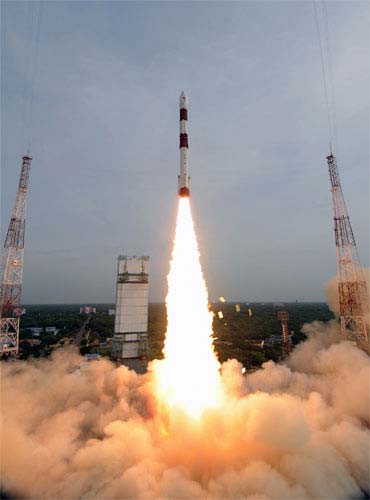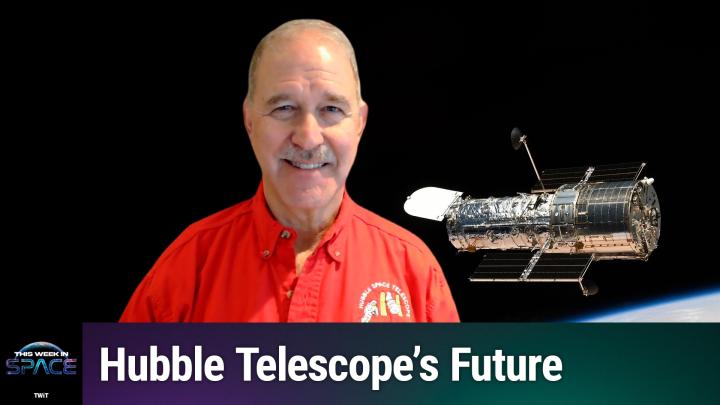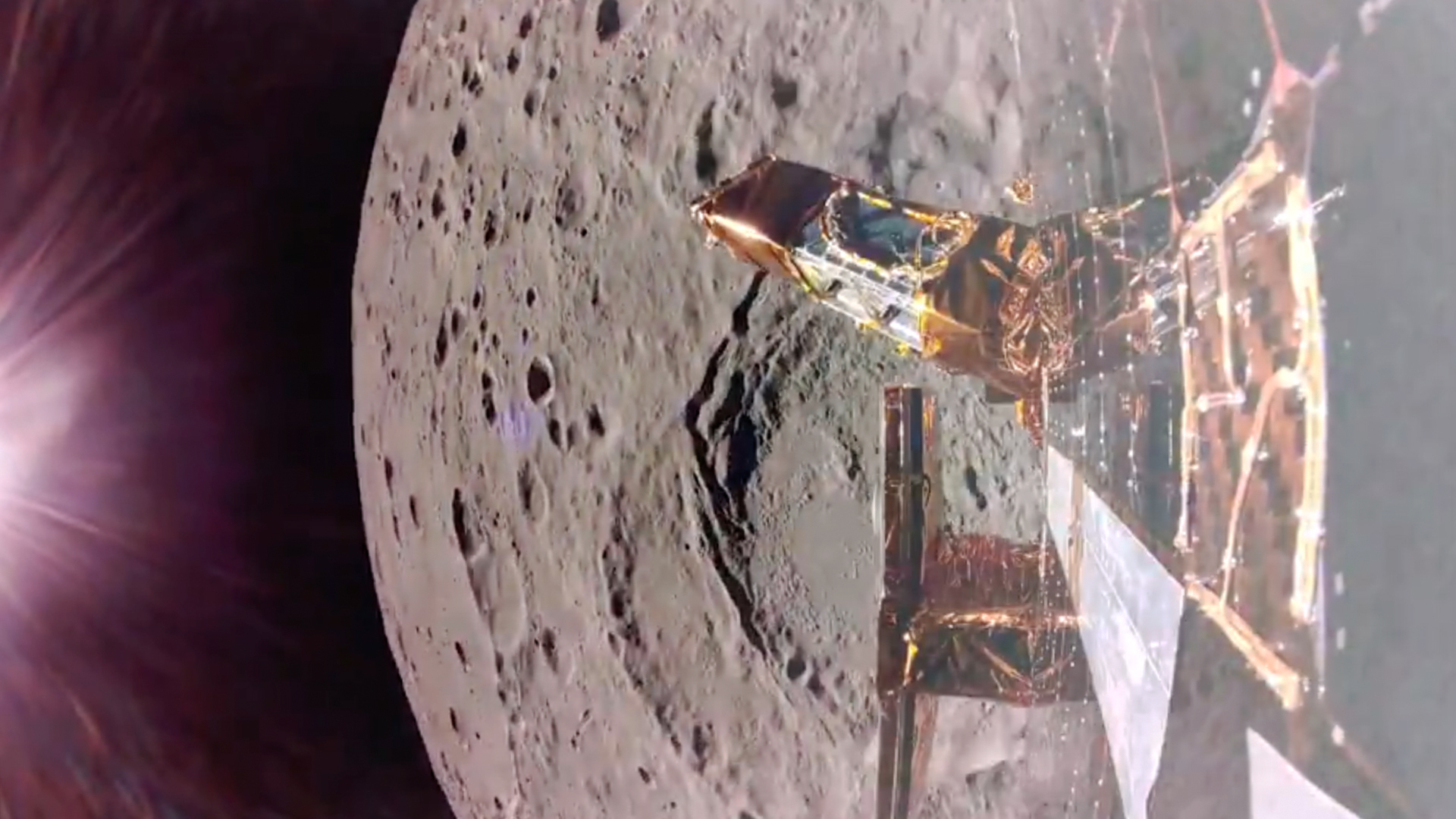India Launches Remote Sensing Satellites

BANGALORE, India ? India?s Polar Satellite Launch Vehicle onJuly 12 successfully launched the country?s Cartosat-2B advanced remote sensingsatellite along with Algeria?s Alsat-2A spacecraft, the Indian Space ResearchOrganisation (ISRO) said.
The launch? originally scheduled for May 9 but postponed due to a technical glitch ? tookplace at 9:22 a.m. local time from the Satish Dhawan Space Centre inSriharikota on India?s southeastern coast.
Also launched on the mission were two nanosatellitesweighing 6.5 kilograms and 1 kilogram built by the University of Toronto andthe University of Applied Sciences of Switzerland, respectively, and a0.65-kilogram picosatellite called ?studsat? built by students from sevenengineering colleges in Bangalore and Hyderabad, India, ISROsaid in a statement.
The mission was the 17th flight of the PolarSatellite Launch Vehicle and 15th consecutive success, ISRO said.
ISRO said the 694-kilogram Cartosat-2B was placed in asun-synchronous polar orbit at a height of 630 kilometers. Cartosat-2B carriesa state-of-the-art panchromatic camera that can take black-and-white pictureswith a spatial resolution of 0.8 meters, or sharp enough to distinguish groundobjects of that size and larger.
It is also a highly agile spacecraft, capable of steeringits camera up to plus or minus 26 degrees along its north-south and east-westaxes to facilitate imaging of any area more frequently, ISRO said. ISROspokesman S. Satish said data from the satellite will help preparation oflarge-scale cartographic maps.
Algeria?s Alsat-2A, weighing 116 kilograms, is a smallremote sensing satellite. The nanosatellites will validate some satellitetechnologies, ISRO said.
Get the Space.com Newsletter
Breaking space news, the latest updates on rocket launches, skywatching events and more!
- Designs for India's First Manned Spaceship Revealed
- Gallery - Liftoff! SpaceX's Falcon 9 Rocket First Launch
- Photos ? Last Flight of Space Shuttle Atlantis
SpaceNews, dedicated to covering all aspects of the space industry.
Join our Space Forums to keep talking space on the latest missions, night sky and more! And if you have a news tip, correction or comment, let us know at: community@space.com.









